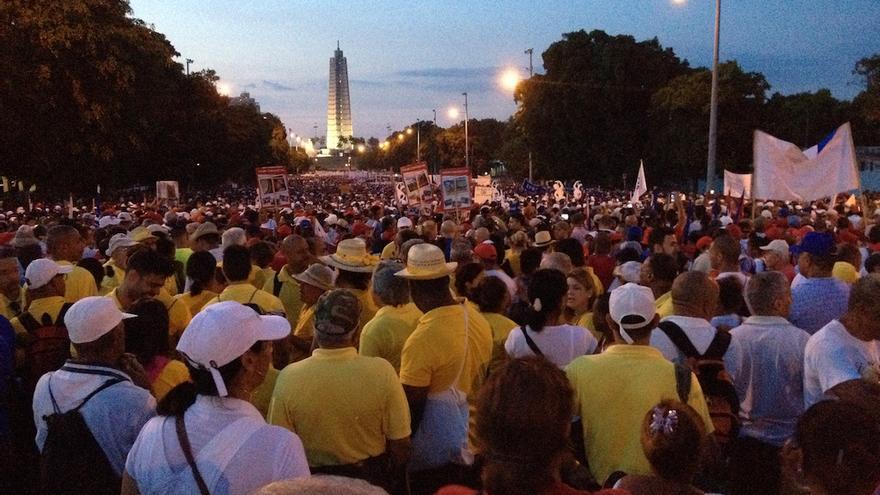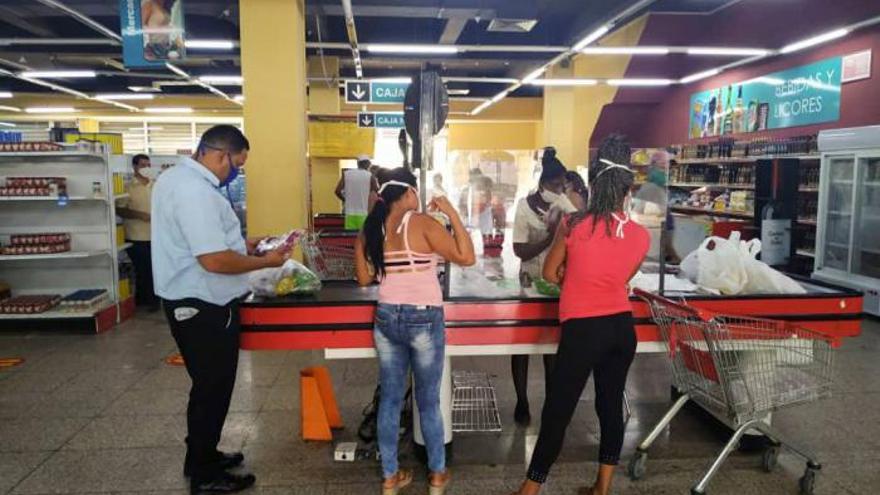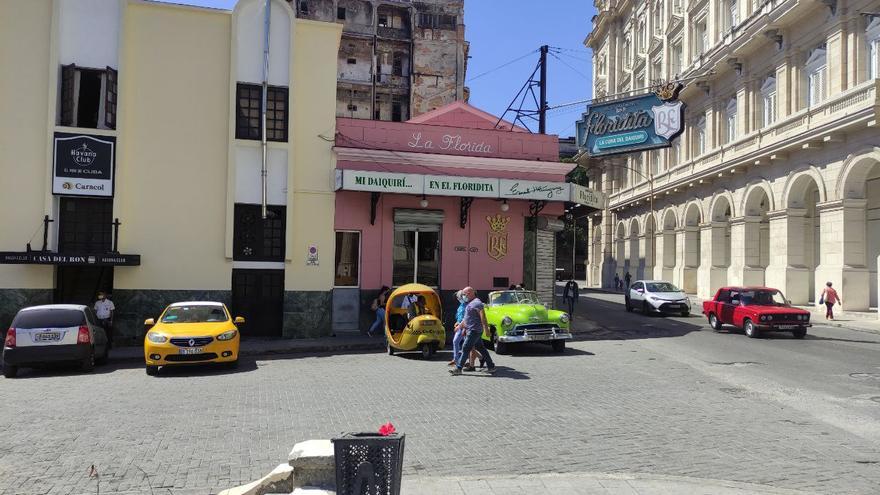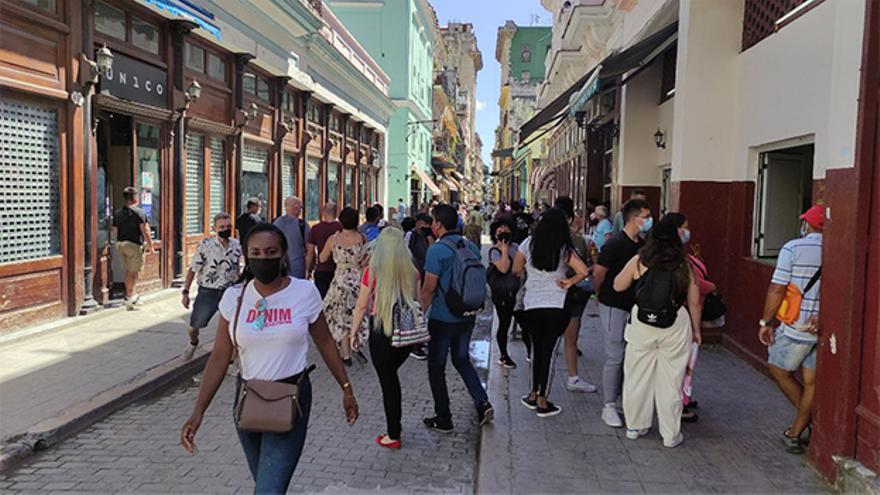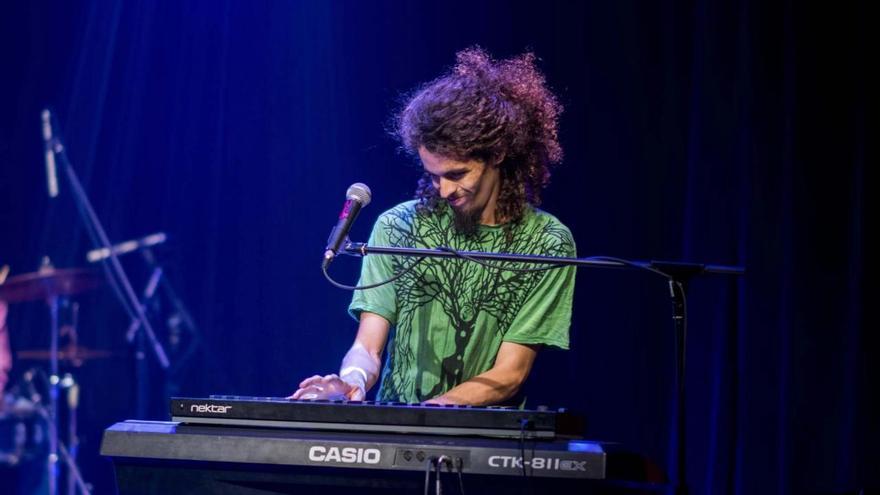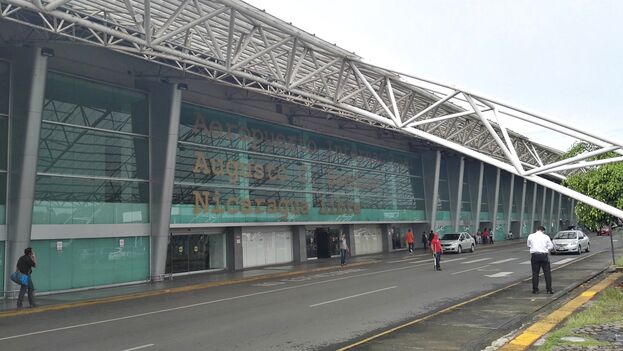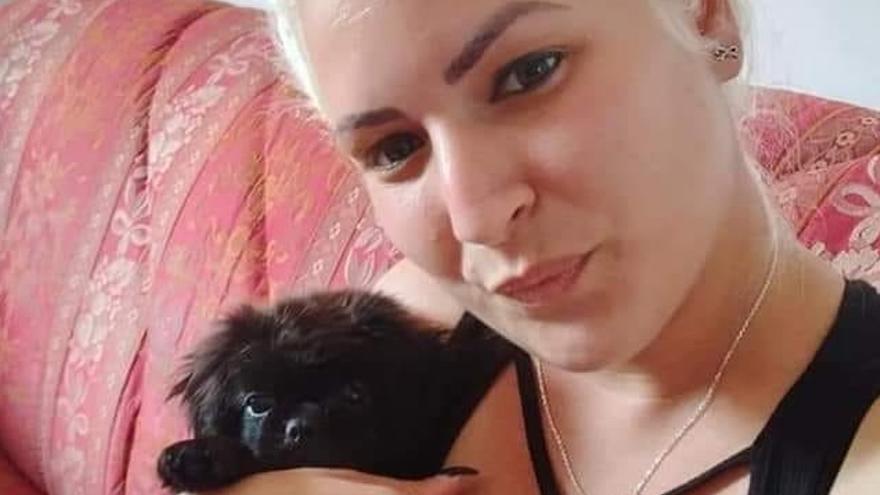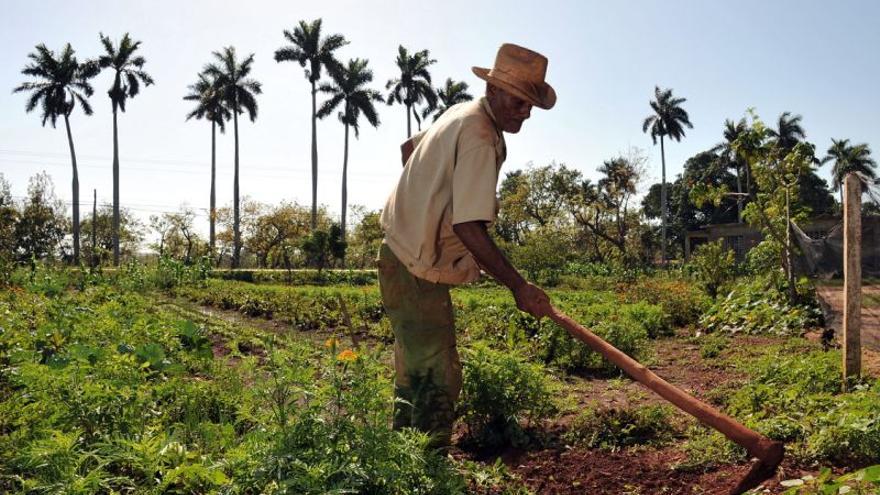The process — mandatory since the United States Embassy in Cuba suspended services in 2017 after the appearance of diplomats with strange symptoms known as “Havana syndrome” — should have been simple, but it has become a trial of anguish and expense.
Before arriving in Guyana, the couple, who are around 70 years old, had “12 days of anguish,” says their daughter, first because there was no ticket on any airline. “We spent hundreds of dollars calling Copa [Airlines] and they didn’t sell us a ticket because, according to them, they were full until July.” Thanks to a contact, they got a flight with a stopover in Panama, at no less than almost 5,000 dollars each.
A few days after buying that ticket, the Panamanian Embassy in Havana announced that Cubans would need a transit visa to set foot on its territory traveling a third country. Although the decision, which provoked demonstrations for days in the vicinity of the consular headquarters and continues to be a source of protest, mainly affected those who planned to emigrate to the United States irregularly via Nicaragua, it also hit those who, like Juan and Ernestina, had undertaken a legal route. continue reading
Both had the consular interview between March 16 and 30, just the dates for which the immigration authorities forced the rescheduling of tickets , since the transit visa had to be requested 15 days in advance. At the last moment, the option of flying to Guyana via Trinidad and Tobago on Caribbean Airlines came up and they took it. Paying, yes, says Miriela, “another ridiculous price.”
Once in Guyana, the problems were far from diminishing. To begin with, the accommodation was not what they had been promised in the advertisement. “In theory, the hostel is a small house with all the minimum conditions. At first they tell you that they charge 90 dollars a day, but when you arrive, it turns out that they charged 100 a day for an apartment,” says Miriela. Similarly, the price included breakfast, lunch and dinner.
However, the quality and quantity of that “full board” was slight, so her parents had no choice but to go to a market to buy what they needed. With the excuse that the accommodation “is not in a very good area,” Miriela denounces, “they charge them to take them to a market far from there, by taxi.”
However, the serious part came with the clinical exams required by the US Embassy as a requirement to grant the visas. “My parents had the tests exactly 15 days ago and supposedly the results are not there,” says Miriela, who insists that “if you give them 200, 300, 400 dollars, depending on how hard you press them, or if they suppose that you have it, the analyzes appear in a matter of seconds.”
That clinic, International Medical Center, was certainly the subject of a scandal in November 2021, when its owner, Dr. Colin Roach, was murdered, a crime for which two employees were arrested, without their identity being revealed.
Miriela calculates that currently the clinic’s workers are 80% Cuban and the other 20% Guyanese and Venezuelan. For this woman from Sancti Spiritus, it is obvious that the clinic and the hostel are involved in “corruption.”
As an example, she relates how one Saturday from the lodging they offered to go to the medical center to collect the tests. “If the clinic only works from Monday to Friday, does it make any sense that the owner of a hostel, who has no relationship with the patient, shows up at her business with the results of the tests?” Miriela wonders “There is obviously influence peddling and an unequivocal link.”
Cuban Berta García Reyes, who went through the same ordeal of obtaining a family reunification visa a few months earlier, in December, argues that “the flow of people is so great that many Cubans don’t have time to get checked before going to their consular interview, so they are forced to reschedule an additional appointment at the embassy to bring the results of the medical checkup, which can take 10 or 12 days, and after bringing those results to the embassy, you have to wait for them to give them to give you a date to finally pick up your visa.”
This, she explains, “has led people to turn to these corruption mechanisms in clinics to speed up their check-ups and results. And it is common for it to be in hostels where they are told who they should go to to resolve their case.”
García Reyes does not know the sum of money in all cases, but she does know “with certainty” that “there are those who have paid a thousand dollars for an accelerated and valid check-up.”
In her case, her problems began at the consular interview itself, when, to her surprise, she was told that she had to “complete and conclude the medical check-up,” even though she had already had those tests six days earlier. “At the hostel, I found out that they had called from the clinic to let them know that I had to go to the hospital,” says García Reyes.
At the clinic, the doctor told her that “a shadow” had been observed on the X-ray image and she diagnosed her with “cystic fibrosis,” and that she should therefore undergo a sputum test “for suspicion of tuberculosis.” There were also other Cubans there whose plates also turned out to be “suspicious,” the woman narrates, “and they had to undergo the same sputum analysis. In some cases they were asthmatic people, and there were also those with COPD [chronic obstructive pulmonary disease]. They informed us that they had to follow the protocol, that is, the sputum test to rule out tuberculosis in all cases.”
All this was very alarming for García Reyes, because the results of the sputum test took between six and eight weeks, which, of course, delayed the time until she would be reunited with her daughter in the United States, but, above all, it made it made the whole process more expensive. “She had to continue to cover my lodging and food expenses – which until then was 45 dollars a day and, by having to extend the accommodation, they lowered it to 35 dollars a day – as well as other additional expenses, for transportation and telephone,” says Bertha.
Added to the anxiety produced by all this was one more concern: “Cubans always feel fear, especially when we are in the process of entering the United States and we believe that they can deport us for anything.”
So at first she went along with it, but it didn’t last long. “As the days went by, I felt I had to do something. We Cubans who were in that situation ended up connecting through the networks. I knew about cases that were in Guyana even before me, since the first week of December, and I also knew that the last sputum test for previous cases had been done on November 11, when the reagent ran out [to process the sputum sample].”
At that time, they concluded that “either the doctors at the clinic were incompetent, incapable of establishing an accurate diagnosis and proceeding accordingly, or else behind everything there was a business involving the clinic and the owners of the hostels, which benefited from the extension of the Cubans’ stay in Guyana.”
The rumor was that the clinic “accepted bribes in exchange for repeating X-rays or changing the results of medical examinations from those who were willing to pay for it.” Meanwhile, hostels were “keeping all their rooms occupied at full capacity.”
García Reyes alludes to the fact that the consular headquarters is fully aware of the situation. “We shared in the hostels with all the other Cubans, who arrived and left with their perfect medical results, those who, if we had tuberculosis, would have brought the disease to the United States. That clearly indicated to us that the medical personnel and even the embassy officials knew that we were not actually sick, so they were not even the least bit concerned or interested in resolving the situation.”
However, each time they pointed this out to officials, they were told that they were just “following protocol.”
“Many of us think that the rumors that began to spread in February (officially confirmed in March) about the restart of the consular services of the US Embassy in Havana were in some way influencing an increase in corruption among the medical centers in charge of doing exams for immigrants and the hostels where they stay, urging them to make the most of it while Cubans continue to be forced to do the paperwork in Guyana,” García Reyes details.
The wheel “began to unlock” for her after her statements to various US media, such as América TeVé and Telemundo, which publicized the problem. From there, congressmen like Marco Rubio also began to demand solutions for the Cubans stranded in Georgetown.
After Berta’s complaint to US television stations, and although without referring to the complaints, the Embassy authorized an additional doctor, Dr. Arya Devi Karyampudi, from St. Joseph’s Mercy Hospital, to perform medical examinations on visa applicants.
Until then, and since Colin Roach’s murder, only Dr. Yonnette Roach had been staffing the International Medical Center. She was the one who saw Juan and Ernestina.
In this regard, Miriela continues to express her doubts about the responsibility of the United States Embassy: “If they are rescheduling most of the appointments because they are showing up without the documents, isn’t it obvious that something is happening with the clinic? What are they going to do about it?”
On March 22, without referring to the complaints, the US consular section in Guyana added two other doctors: Zulfikar Bux, from St. Joseph’s Mercy Hospital, and Dev Persaud, from the Midway Specialty Care Center.
The delays, in any case, are not new, and for this reason last December the United States announced the increase in personnel at its diplomatic headquarters in Georgetown.
With not much success. Laments like those of Juan, Ernestina and Berta multiply in the Facebook group “Cubans united for family reunification,” many of them pointing directly to the consular headquarters as being responsible for the situation.
“You have to denounce these people, those from the embassy are in a plot with the hostels so that you have to spend more time here,” says Justo Toledo Luis. “When you go to the interview they ask you what hostel you are stayig in. Nobody leaves here in less than a month.”
Nierys Bermúdez refers to the owners of the hostels as “fraudsters,” charging guests $300 to “resolve” their medical check-up. “They want to get rich at the expense of Cubans’ pain, it’s too much,” she says, in the same vein as Zurileydis Domínguez Vichot: “What I think is that, as always, they make a lucrative deal off of our suffering.”
The criticism in the Facebook group has turned into praise, thanks and blessings since, this Wednesday, when the United States Embassy announced that it will resume processing in Havana the IR-5 category visas, which recognizes parents who are being claimed by US citizens.
In spite of everything, the diplomatic headquarters in Cuba insisted again that next month’s will be a “limited” resumption, which means that the Embassy in Georgetown “will continue to be the main place of processing for the majority of Cuban immigrant visa applicants.”
In addition, the embassy warned that applicants who have been notified before April 1, 2022 that their case is ready to be processed, will continue to be required to fly to Guyana. Those who have been notified after that date will have their interview scheduled in Havana.
“Given the limitations of their resources,” they added, they are not accepting “transfer requests from applicants.” They also do not have “an exact date” for when the diplomatic headquarters “will begin to process the full range of visa services for immigrants and non-immigrants,” but they assured that they will continue to provide “essential services to US citizens and a limited processing of emergency visas for nonimmigrants.”
For Berta García Reyes, the process was “without a doubt, the worst and most stressful experience” of her life, the cost of which “has been countless humiliations, mistreatment, indifference, contempt, helplessness, abandonment, anguish, to such an extent that some wanted to return to Cuba and wait for a new date.”
There are still dozens of Cubans in Guyana, spending money that is beginning to be unsustainable for their families. Miriela and her husband have spent 14,000 dollars, not counting the tickets from Guyana to the US. “And the old man’s interview is on April 22. Calculate how many dollars an average family needs for this process,” she laments with this newspaper. “Coming illegally to this country is cheaper than leaving through legal channels.”
____________
COLLABORATE WITH OUR WORK: The 14ymedio team is committed to practicing serious journalism that reflects Cuba’s reality in all its depth. Thank you for joining us on this long journey. We invite you to continue supporting us by becoming a member of 14ymedio now. Together we can continue transforming journalism in Cuba.
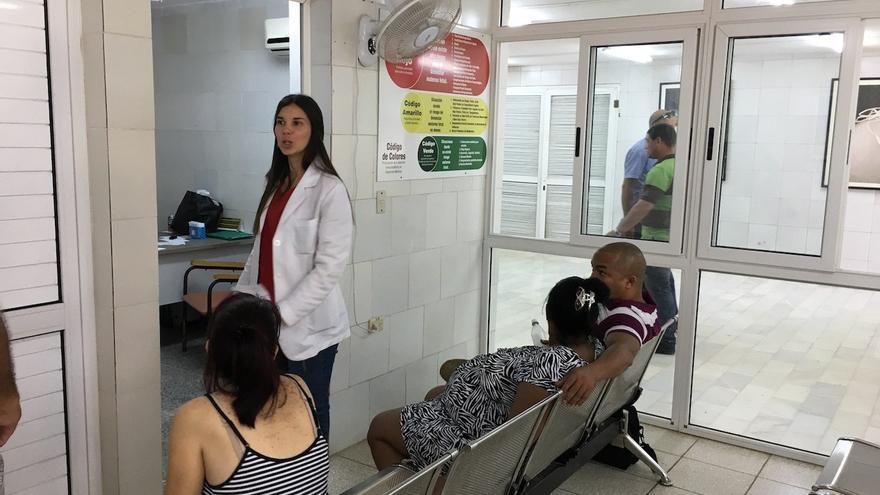
![]() EFE (via 14ymedio), Havana, 13 April 2022 — Adolescent motherhood in Cuba has decreased in the last two years –marked by the pandemic — however the fall was at a much slower rate than among all other age groups, and therefore now represents a greater percentage of mothers in the country (17%), according to a study by the Center for Demographic Studies of the University of Havana.
EFE (via 14ymedio), Havana, 13 April 2022 — Adolescent motherhood in Cuba has decreased in the last two years –marked by the pandemic — however the fall was at a much slower rate than among all other age groups, and therefore now represents a greater percentage of mothers in the country (17%), according to a study by the Center for Demographic Studies of the University of Havana.
